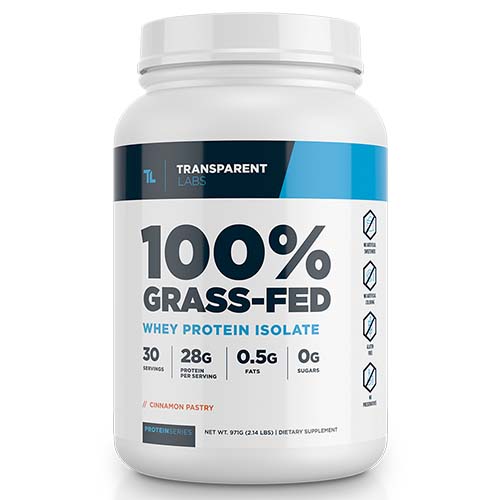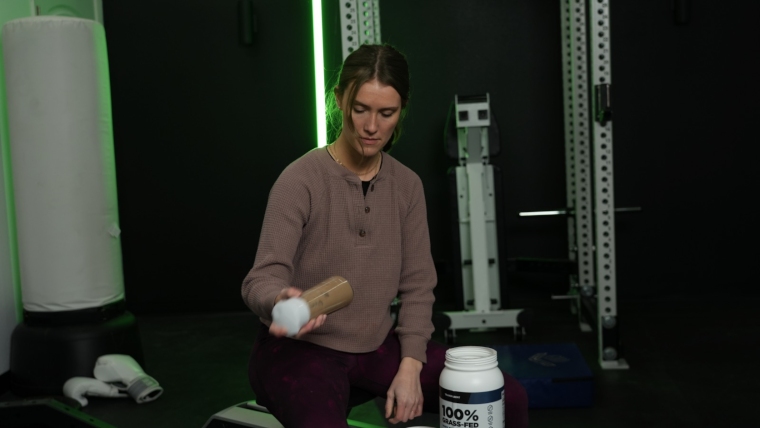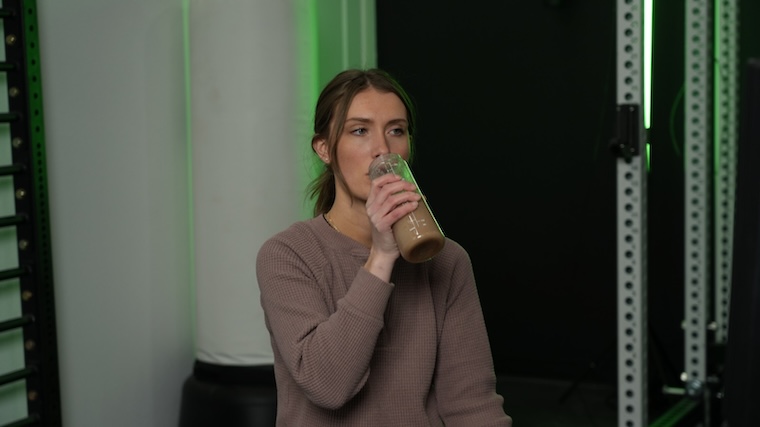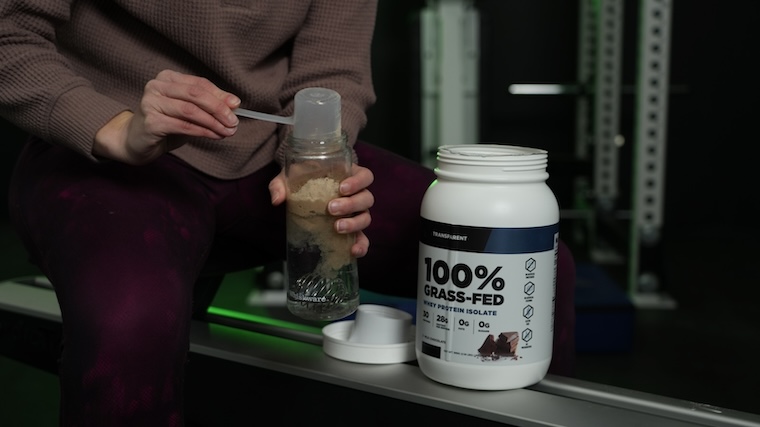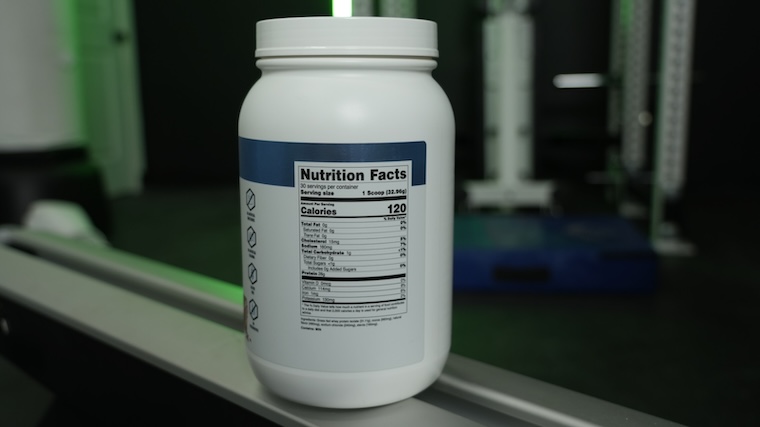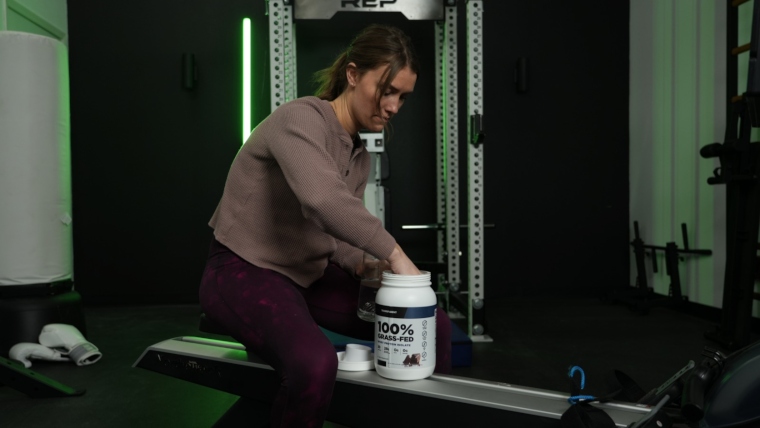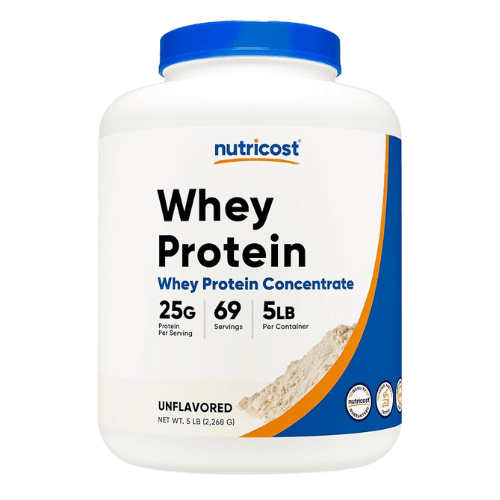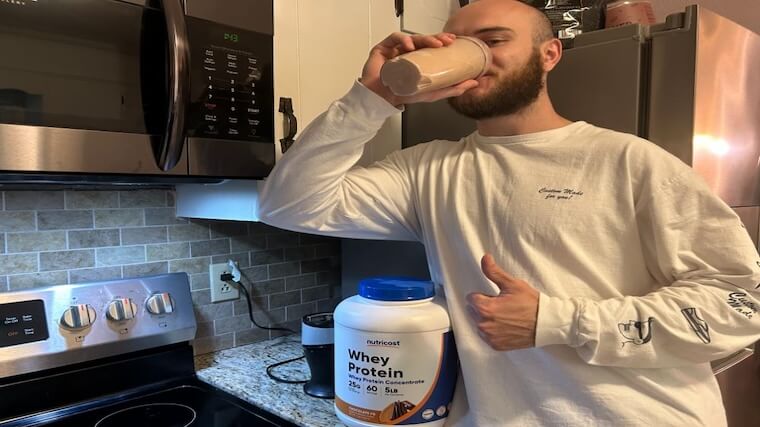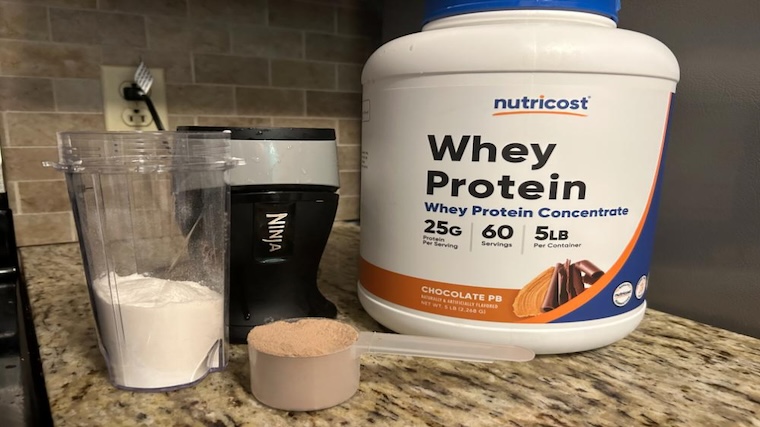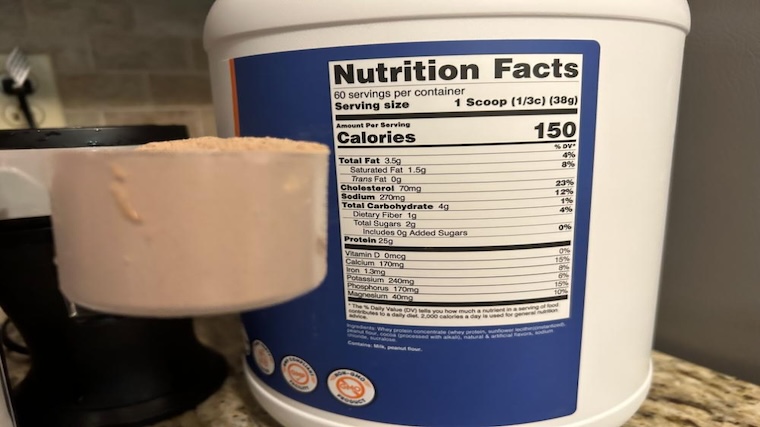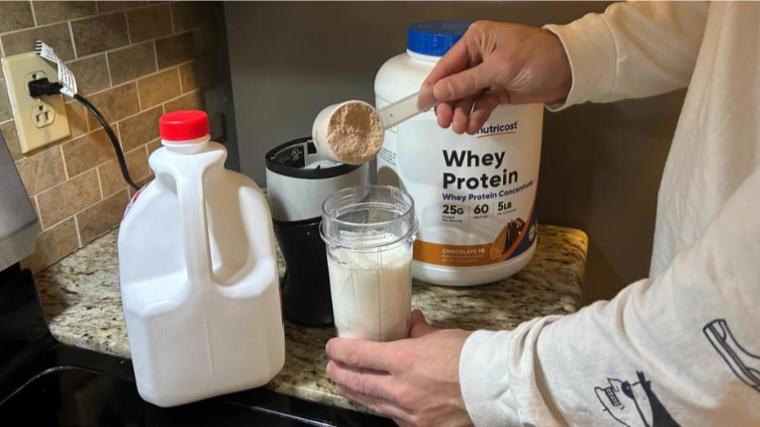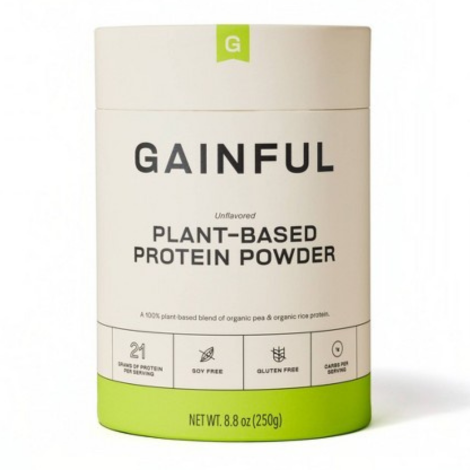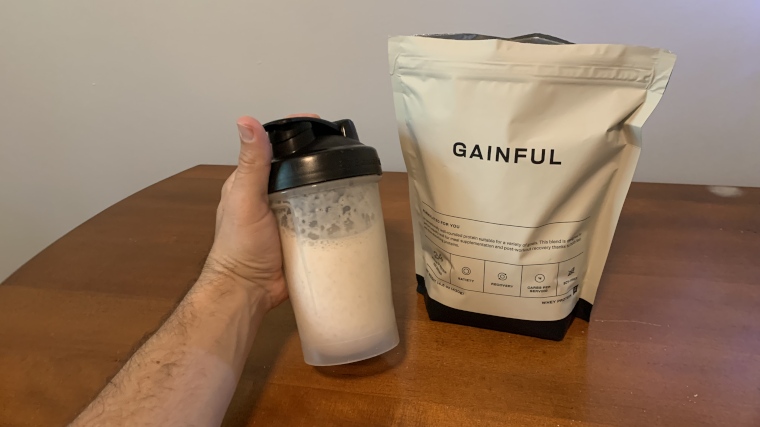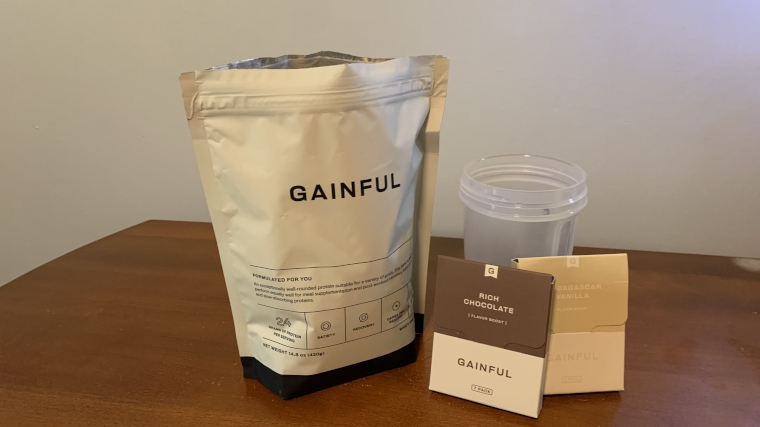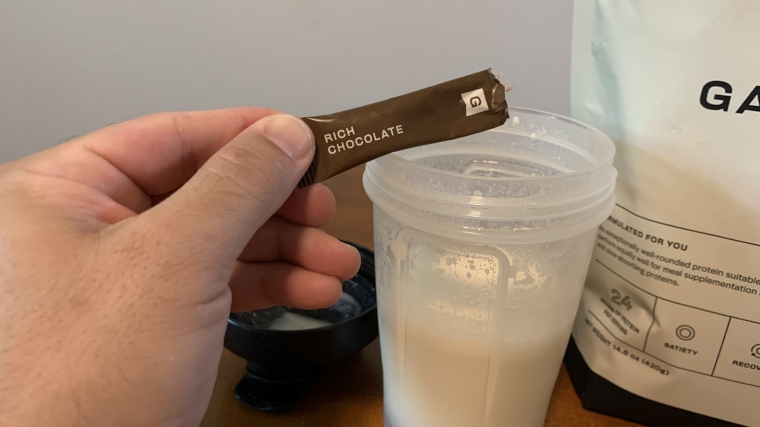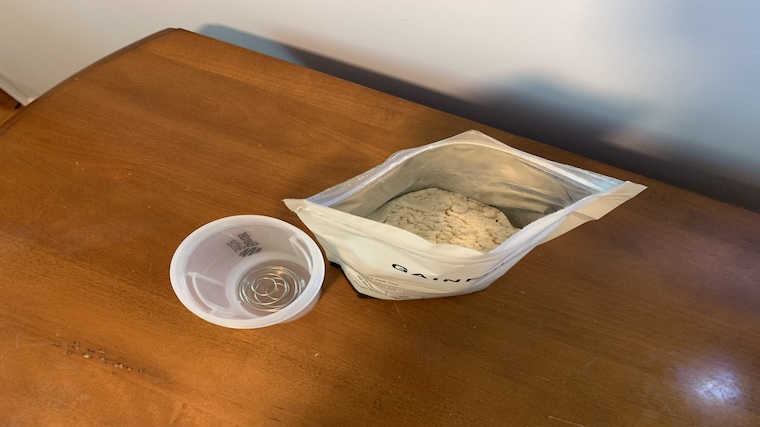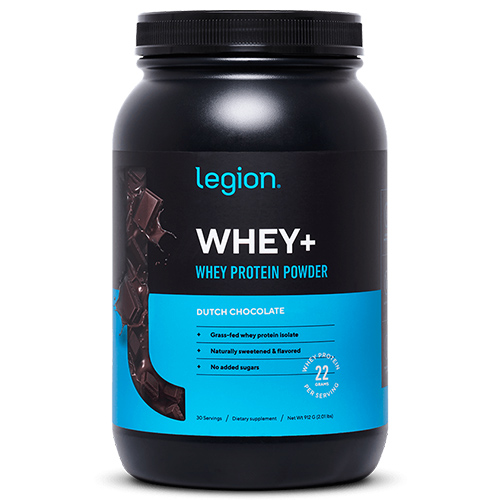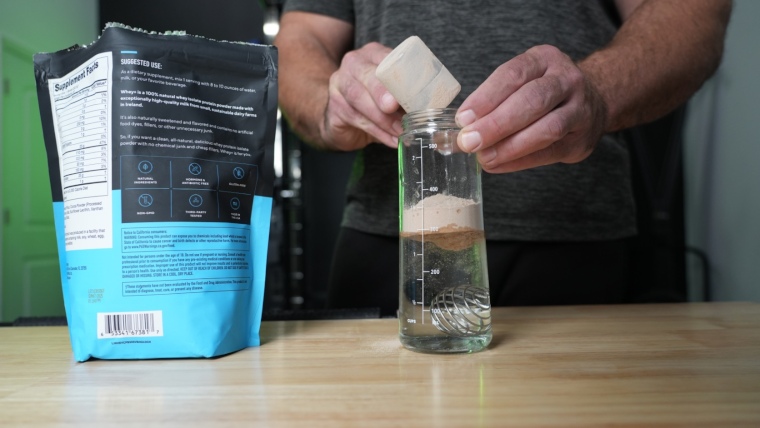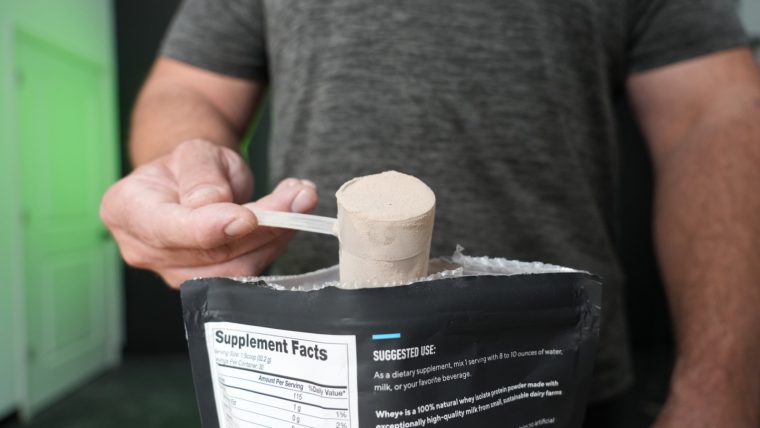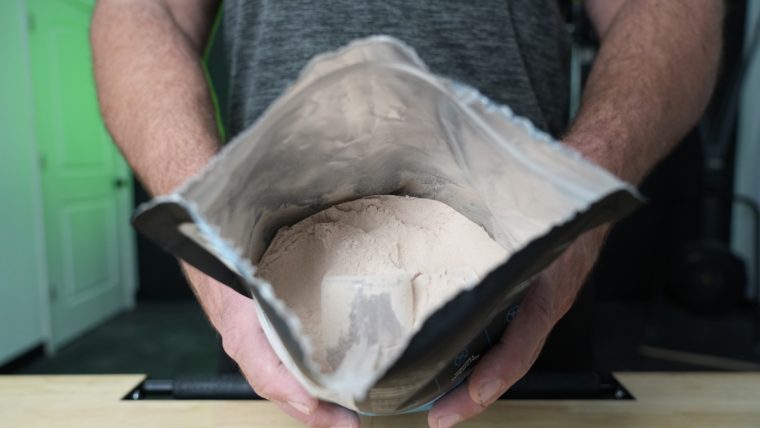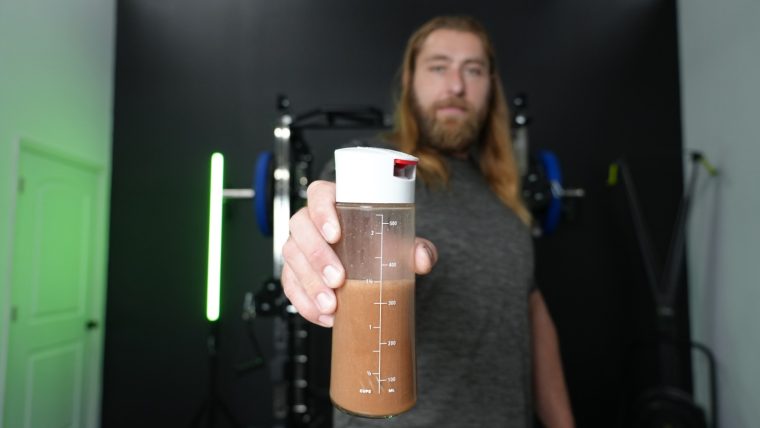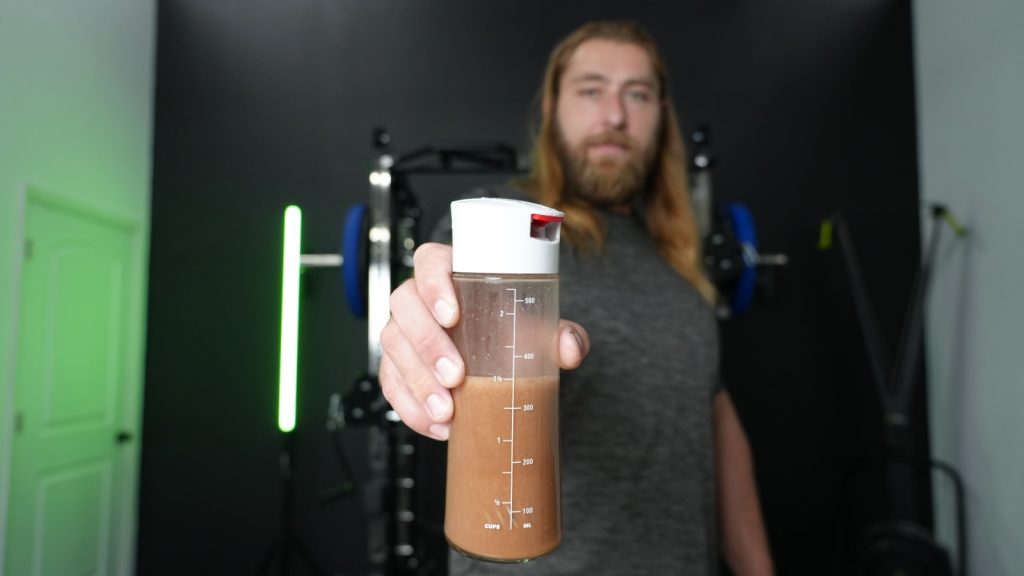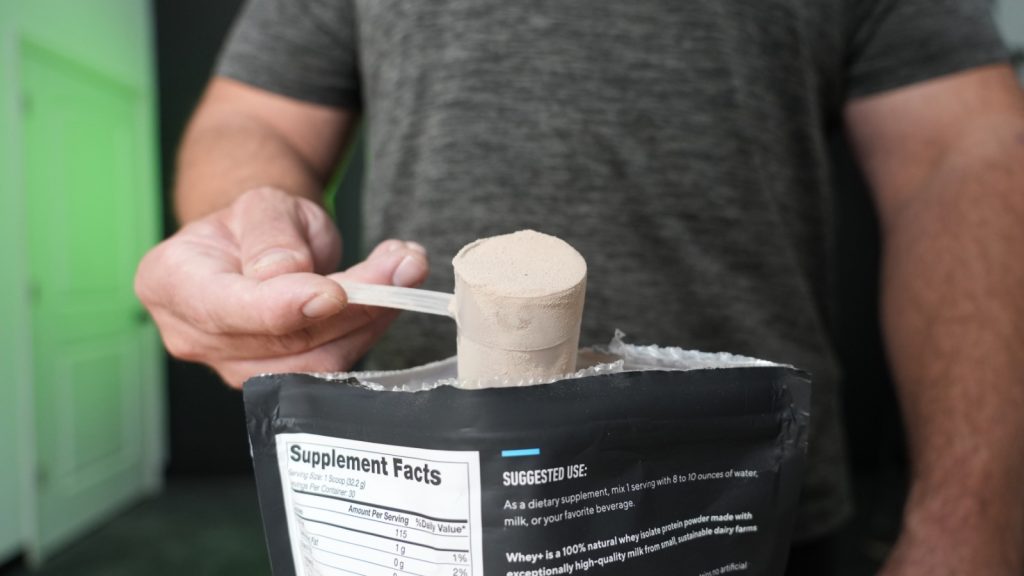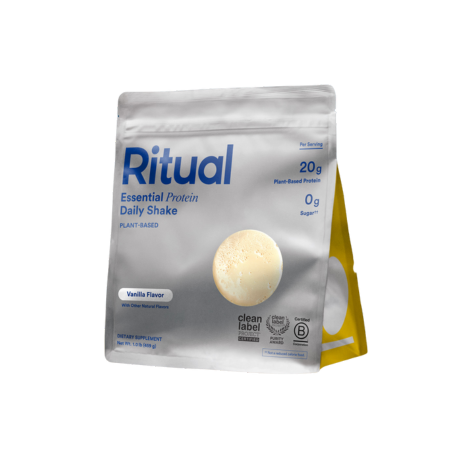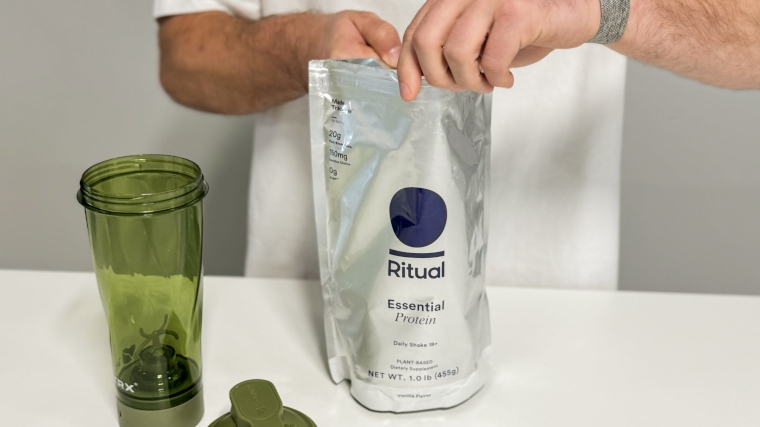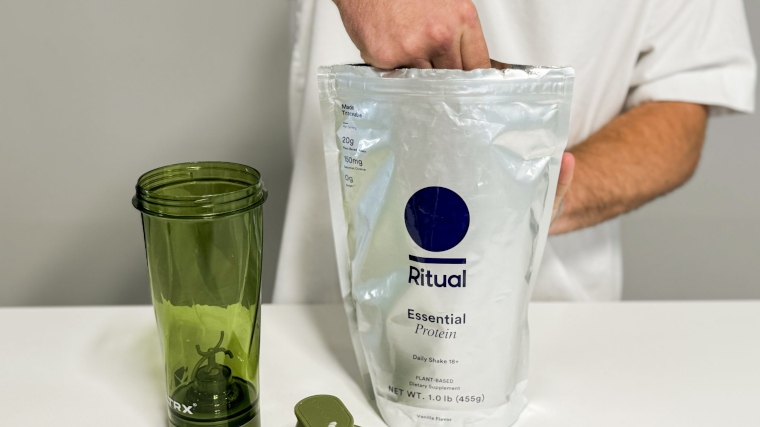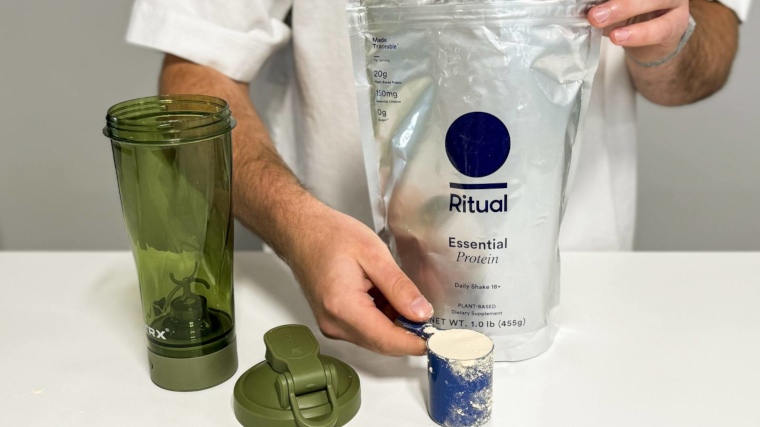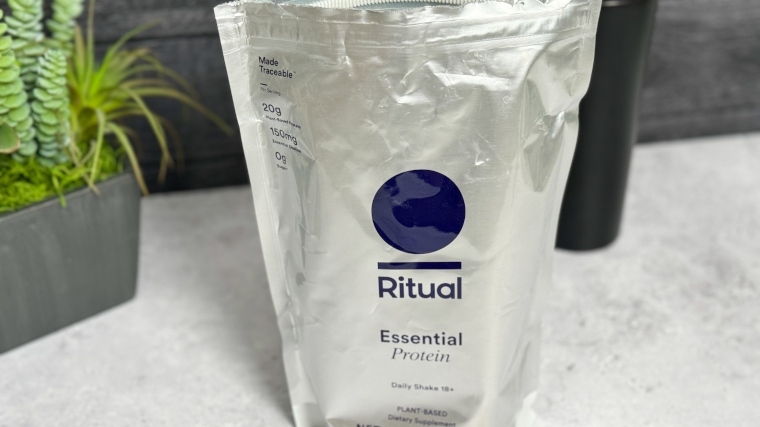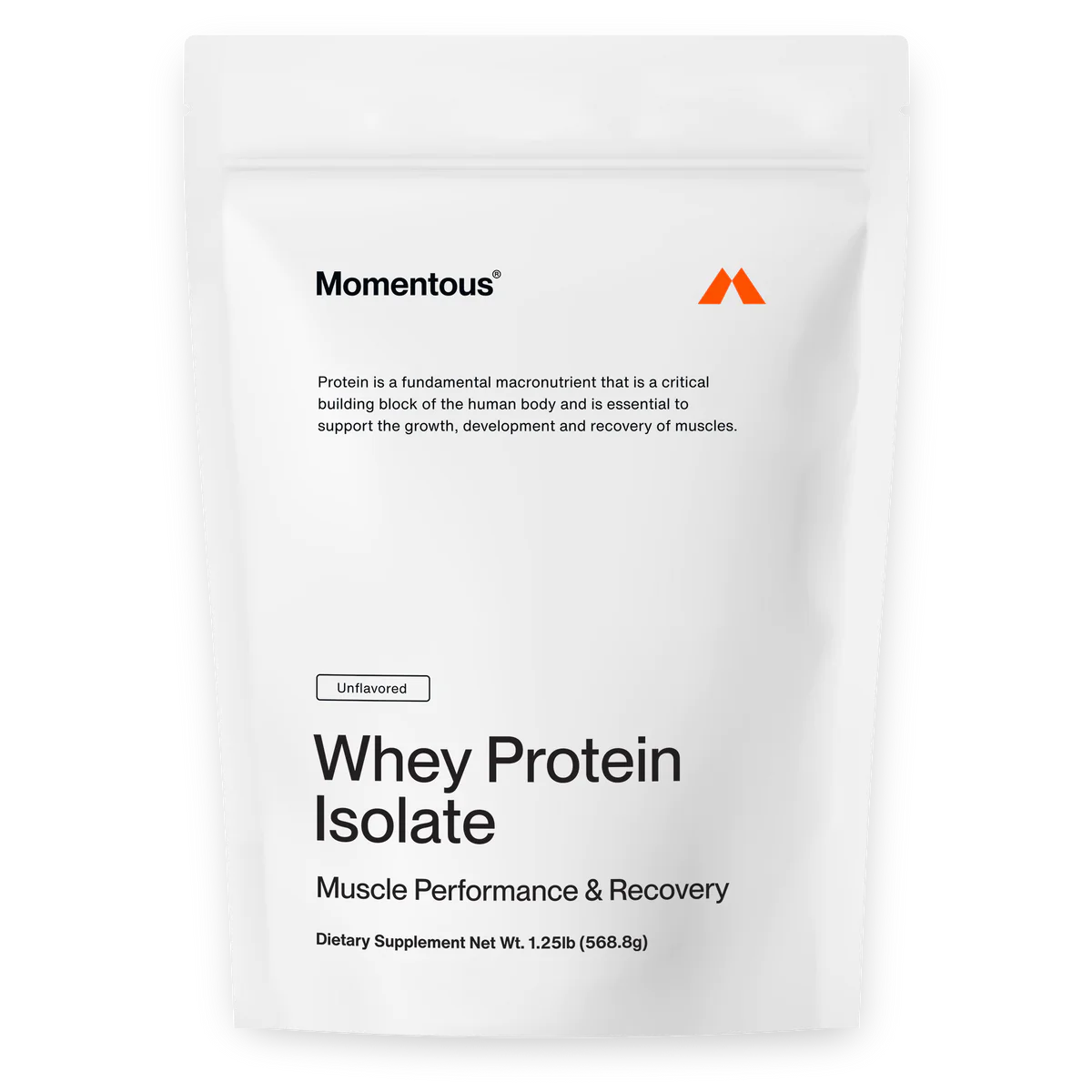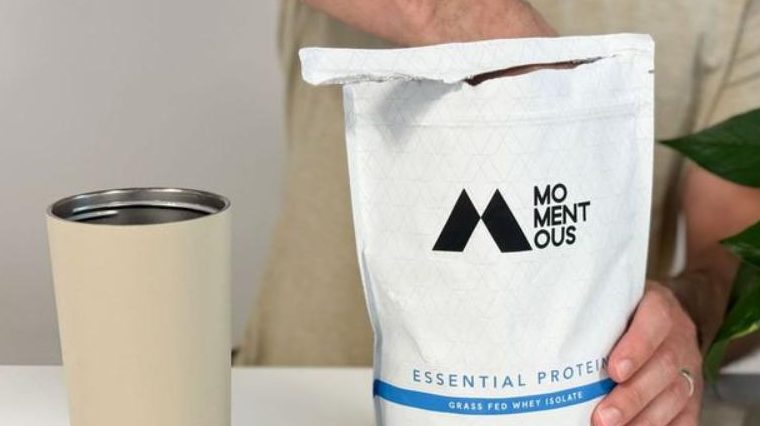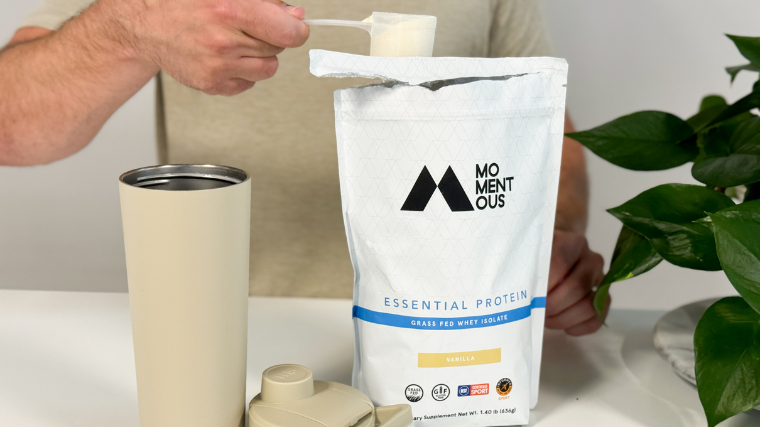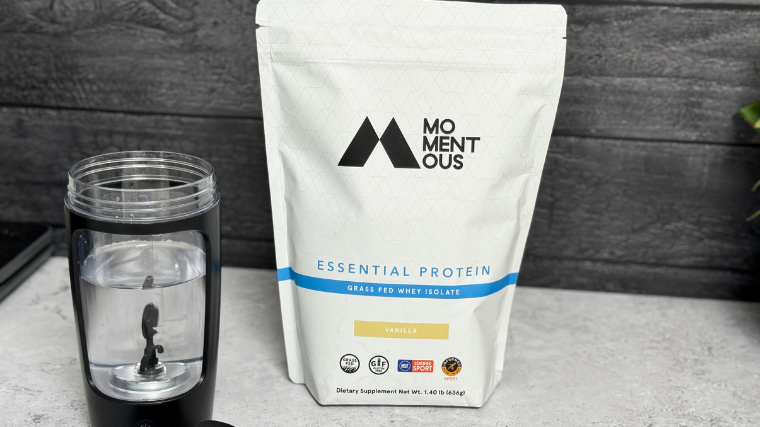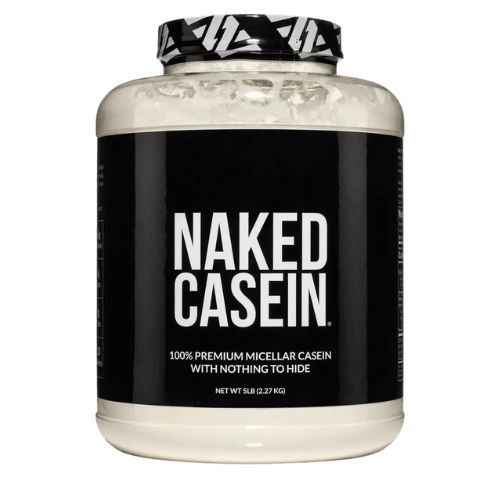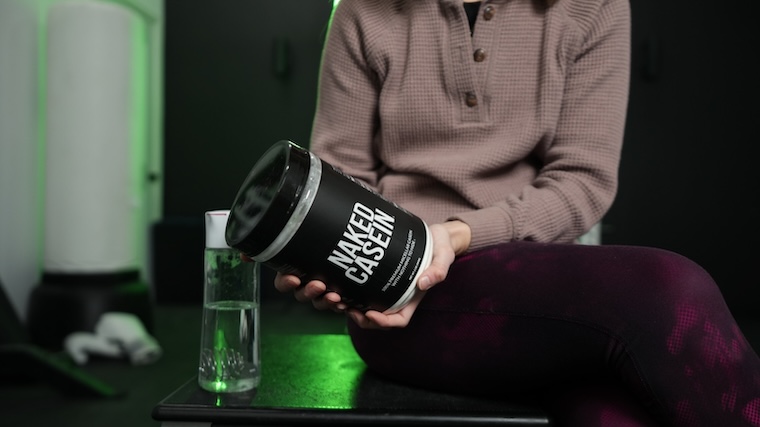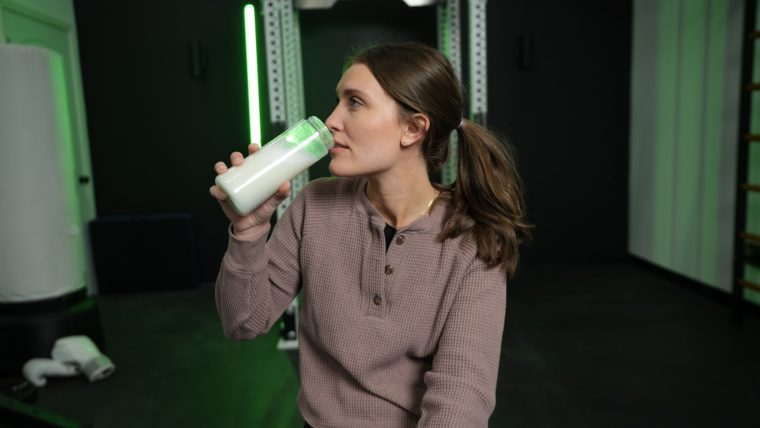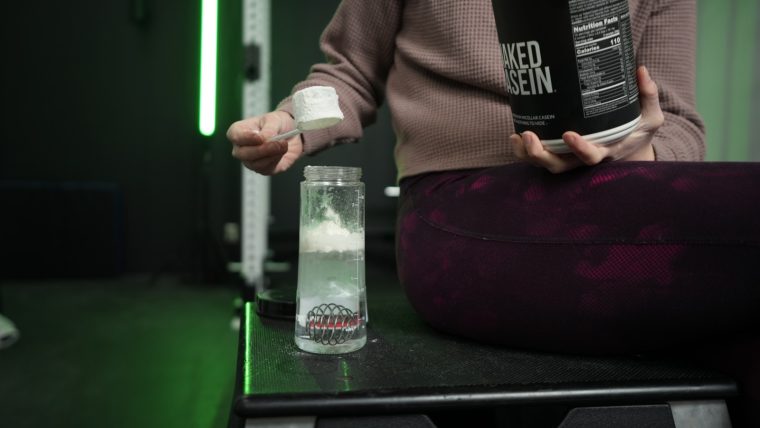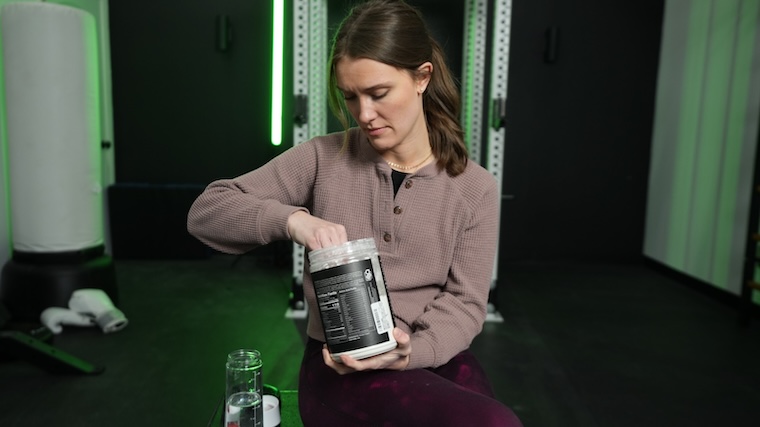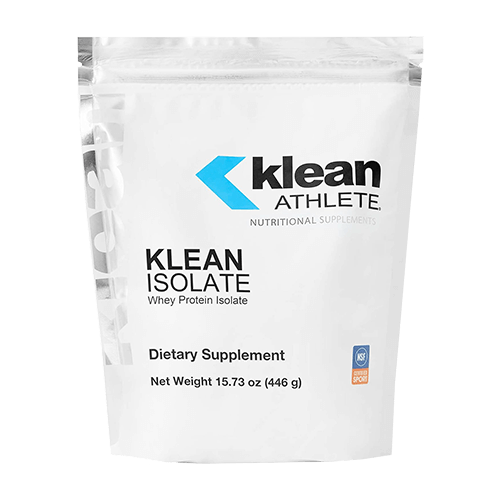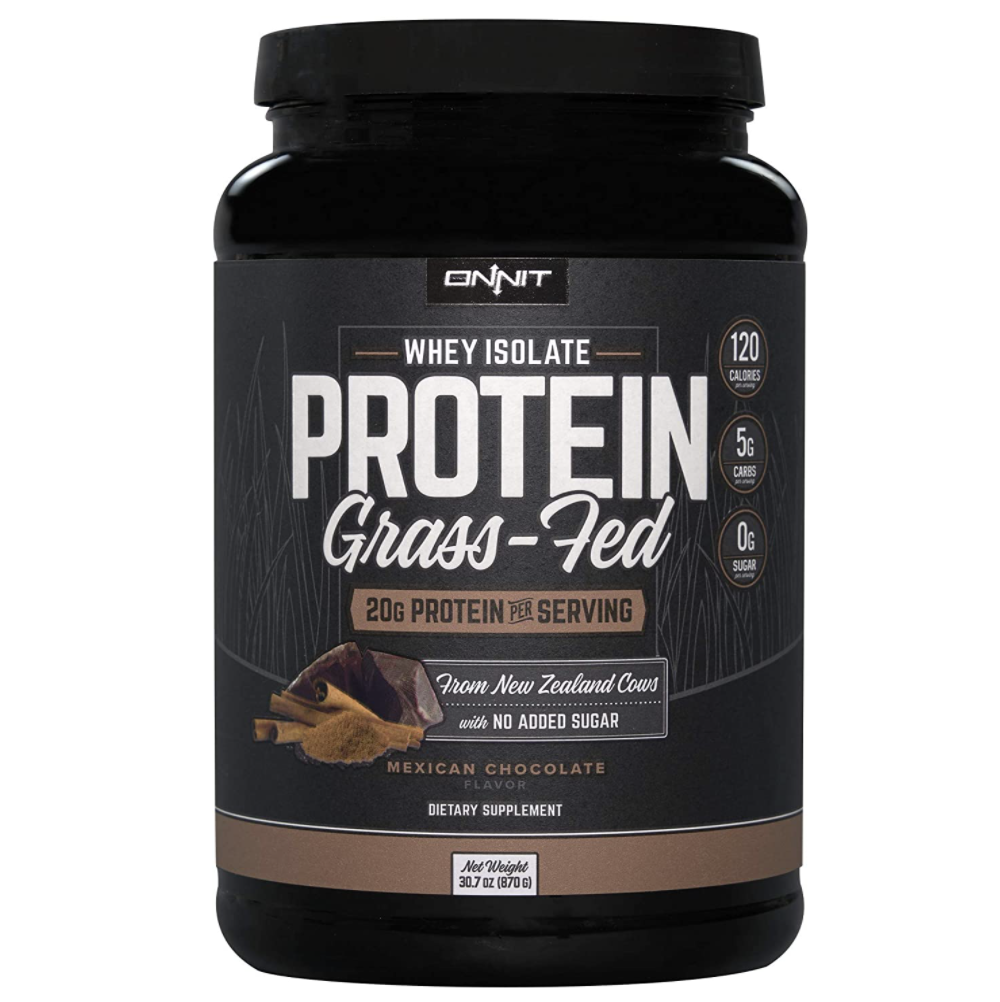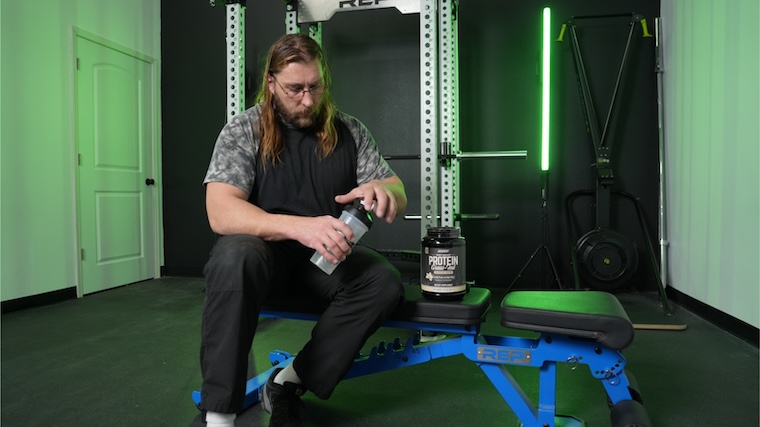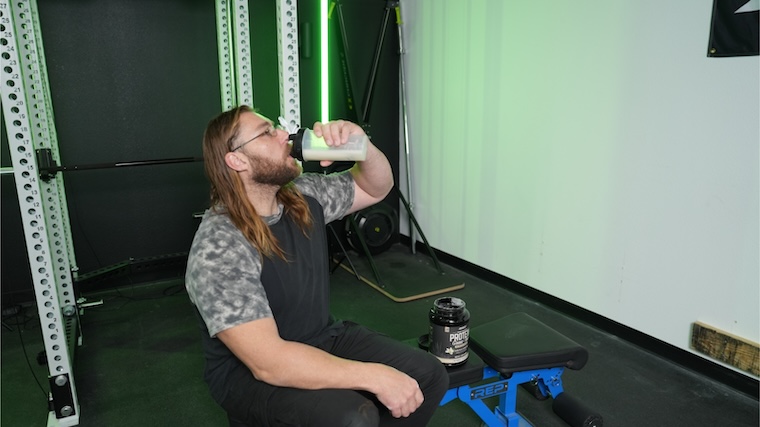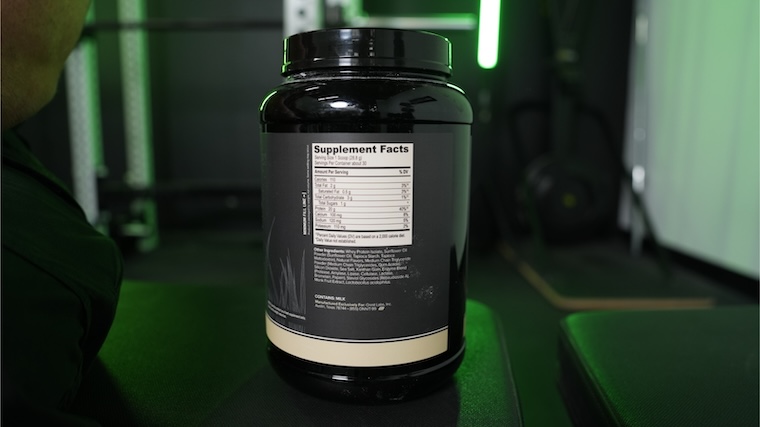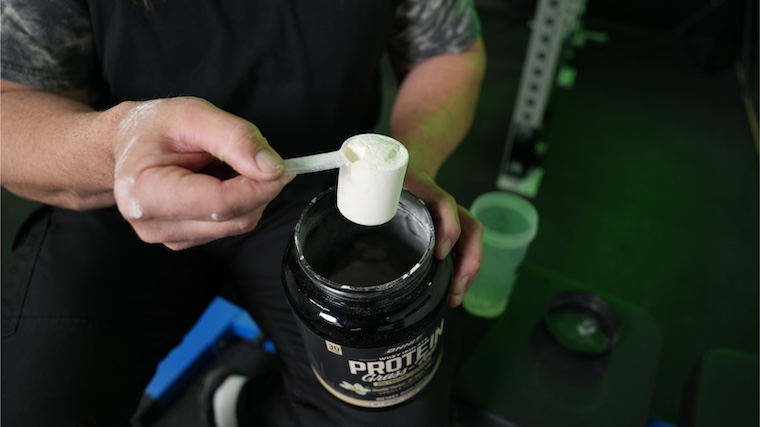According to Dr. Raj Dasgupta, MD, “The best protein powders can be excellent supplement options for anyone looking to improve fitness, boost muscle growth, recover after workouts, and stay healthy.” (1) Sadly, though, the supplement industry can be full of snake oil, meaning your protein shake may be riddled with unwanted ingredients and synthetic additives if you’re not carefully reading through the ingredients. The best clean protein powders can help alleviate those headaches for athletes with simple yet effective makeups designed to keep your training running optimally without any smoke and mirrors.
The descriptor “clean” may be considered problematic when discussing diets, since it implies that other foods are “dirty” or “bad.” However, in this article we use the phrase clean protein powders to refer to supplements that are mostly formulated with pure, unprocessed, and natural foods. To compile this round-up of the top clean protein powders available today, our team of experts got hands on with dozens of high-quality protein supplements, using our supplement testing methodology to rate each chosen product in categories such as the following:
- Ingredients and Formulation: Are the listed ingredients understandable and recognizable? Does the makeup contain worthwhile carbs, fats, calories, and amino acids — a pivotal influence on how your body synthesizes protein? (2)
- Protein Content: How much protein do these powders deliver per serving? Where is the protein sourced from, and how can that appeal to different dietary needs?
- Taste and Solubility: Do these clean proteins feature an enjoyable flavor profile? Does the powder blend easily in a standard shaker bottle, or are more powerful kitchen appliances needed for a daily protein shake?
- Value: Does the performance of each protein powder justify the listed cost per serving? Does the supplement brand offer discounted services or other amenities to help lessen order totals?
The BarBend team has helped connect over 1.6 million athletes with high-quality nutritional supplements to support their fitness goals and performance. If you’re on the hunt for a brand-new clean protein powder to add to your daily regimen, we’re confident that the following details can help you find a premier pick for your specific needs.
The 9 Best Clean Protein Powders of 2025
- Best Clean Protein Powder Overall: Transparent Labs Whey Protein Isolate
- Best Clean Budget Protein Powder: Nutricost Grass-Fed Whey Protein Concentrate
- Best Clean Vegan Protein Powder: Gainful Vegan Protein
- Best Clean Whey Protein Powder: Legion Whey+
- Best Clean Plant-Based Protein Powder: Ritual Essential Protein Daily Shake
- Best Clean Grass-Fed Protein Powder: Momentous Grass-Fed Whey Protein
- Best Clean Casein Protein Powder: Naked Micellar Casein
- Best Clean Protein Powder for Athletes: Klean Athlete Klean Isolate
- Best Tasting Clean Protein Powder: Onnit Grass-Fed Whey Isolate
Editor’s note: The content on BarBend is meant to be informative in nature, but it should not be taken as medical advice. The opinions and articles on this site are not intended for use as diagnosis, prevention, and/or treatment of health problems. It’s always a good idea to talk to your doctor before beginning a new fitness, nutritional, and/or supplement routine. Individual needs for vitamins and minerals will vary.
Best Clean Protein Powders Video Review
Watch as BarBend expert reviewer Jake Herod, NASM-CNC talks through the best clean protein powders alongside registered dietitian nutritionist Chelsea Rae Bourgeois. Listen to their insight as they touch on top picks from Transparent Labs, Momentous, and more.
Best Clean Protein Powder Overall: Transparent Labs
Whey Protein Isolate
Read our full Transparent Labs Whey Protein Isolate Review.
Best Clean Budget Protein Powder: Nutricost Grass-Fed Whey Protein Concentrate
Read our full Nutricost Whey Protein Concetrate Review.
Best Clean Vegan Protein Powder: Gainful Vegan Protein
Read our full Gainful Protein Powder Review.
Best Clean Whey Protein Powder: Legion Whey+
Read our full Legion Whey+ Protein Review.
Best Clean Plant-Based Protein Powder: Ritual Essential Protein Daily Shake
Best Clean Grass-Fed Protein Powder: Momentous Grass-Fed Whey Protein
Read our full Momentous Grass-Fed Whey Protein Isolate Review.
Best Clean Casein Protein Powder: Naked Micellar Casein
Best Clean Protein Powder for Athletes: Klean Athlete Klean Isolate
Best-Tasting Clean Protein Powder: Onnit Grass-Fed Whey Isolate
Read our full Onnit Grass-Fed Whey Isolate Review.
How We Tested and Chose the Best Clean Protein Powders
The BarBend team is made up of competitive athletes, certified personal trainers, and lifelong fitness enthusiasts. To determine the best clean protein powders available today, we’ve tested over 100 different profiles from the industry’s best brands using our supplement testing methodology. Below are some of the categories and components that played into our rankings.
- Ingredients: We’ve kept this list to clean protein powders that feature rather short ingredients lists of roughly three to seven components. We looked for proteins that relied more on natural ingredients, rather than artificial additives.
- Protein Source: We favored dairy-based protein powder derived from grass-fed cows, as studies indicate grass-fed dairy can be higher in antioxidants and healthy fats. (3)(4) And for plant proteins, we chose formulations composed of multiple high-protein plant sources, including peas, quinoa, and others to ensure it has a complete amino acid profile.
- Protein per Serving: We looked for clean proteins with at least 20 grams of protein per serving, which is aligned with the optimal recommendation of 20 to 40 grams of protein per sitting from the International Society of Sports Nutrition. (5)
- Carbs, Fats, and Calories per Serving: Because the point of protein shakes is to maximize protein intake and absorption without a lot of calories, we looked for protein powders with minimal carbs and fats per serving.
- Third-Party Testing: We prioritized proteins that have been third-party tested to guarantee the label is accurate.
- Lab Testing: BarBend also worked with a third-party accredited lab to test our favorite protein powders for heavy metals and other impurities.
- Taste: Some of the best-tasting protein powders rely on artificial ingredients. We examined clean protein powders getting their mouth appeal from natural flavor and sweetener sources like stevia and monk fruit extract.
What is a “Clean” Protein Powder?
As a certified sports nutrition coach and fitness professional, I’m the first to admit that I don’t like the word “clean” to describe foods. It implies that there are also “dirty” foods, which I don’t think is true. All food has some sort of value, regardless of the ingredients list and nutrition label.
That said, we also understand the desire to avoid artificial ingredients and impurities in your food and supplements, especially given the lack of regulation in the supplement industry.
“Many additives and preservatives can lead to inflammatory reactions and other undesirable side effects,” says Dr. Jennie Stanford, MD, FAAFP, DipABOM.
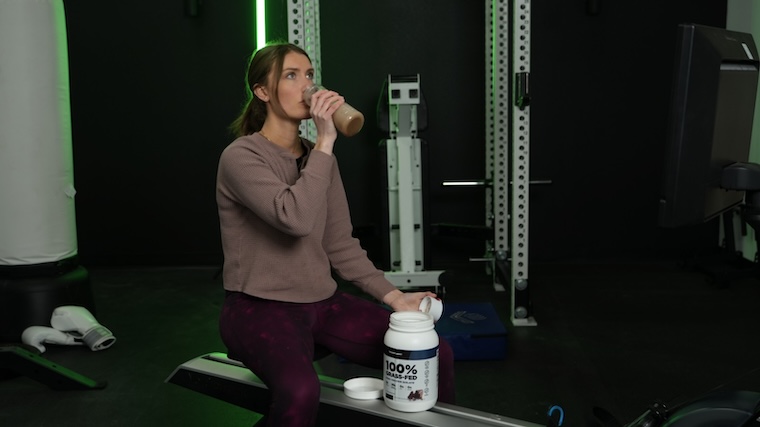
For this guide, we defined a “clean protein powder” as a supplement that keeps things simplified with natural ingredients and little to no influence from synthetics.
When looking for a clean protein powder, the biggest telltale sign is in the ingredients list. For example, if you can count how many components there are in your whey protein powder of choice on, at most, two hands, it likely meets the criteria. If you see terms you don’t recognize in the ingredients list, investigate them: Most likely, they are just there for texture.
While we won’t go too far into the weeds in identifying all artificial additives used by supplement brands, we will leave you with this small tip: Fewer ingredients is almost always better as far as “clean” protein powders go.
Benefits of Clean Protein Powders
Protein is a key macronutrient for anyone hoping to build lean muscle and burn fat, and it can also assist with muscle recovery after workouts. (1) Clean proteins can provide even more benefits, especially for those hoping to lose weight or struggling with allergy or digestive issues.
Weight-Loss Help
Protein is proven to help you feel fuller for longer than other macros, which is why it’s been scientifically linked to weight loss and weight maintenance. (11)(12) Clean protein powders also contain fewer artificial sweeteners and fillers. Chris Mohr, PhD, RD, adds, “When you’re aiming to lose weight, you’ll need an overall reduction in calories. Replacing some lower quality foods in your diet with a high-quality, clean protein may help you achieve that desired calorie deficit without compromising your satiety.”
Naturally, though, even the best protein powders for weight loss won’t automatically help you shed unwanted pounds. The point to remember is that protein powders should be used as supplemental tools for your fitness goals, closing the gaps that pop up within your diet consisting mainly of whole-food sources.
Cater to Allergies/Sensitivities
Clean protein powders tend to be free of many common allergens, like soy, nuts, lactose, and gluten, making them more suitable for individuals with dietary restrictions. If you’re failing to get enough protein through whole foods, yet struggle to find protein supplements without these allergens, a clean protein powder could be a potential solution.
Easier to Digest
As these clean protein picks are usually free of lactose, gluten, and artificial ingredients, clean protein powders tend to be easier on the stomach than traditional powders.
Of course, though, this isn’t to say that all clean protein powders will leave you without potential stomach rumblings. For example, some clean proteins utilize natural sweeteners like stevia or erythritol to create their palate-pleasing profiles. Stevia has been shown to potentially cause GI distress in some athletes. (13) It can be wise, then, to trial your clean protein powder first and analyze your body’s response to the formulation.
What To Consider Before Buying Clean Protein Powders
Dr. Raj Dasgupta, MD states, Protein is one of the most vital nutrients and a critical component for every cell in the body. Protein is a building block for muscle mass, hair, skin, and nails, and even helps your tissues build and repair themselves when placed through stressful activities (like exercising.” Naturally, then, you’ll want to take your clean protein purchases seriously. Below are a few factors we recommend pondering over before finalizing your online cart.
Your Dietary Needs
If you’re vegan or allergic to soy, gluten, or lactose, that will factor into the kind of protein powder you’ll choose. Consider your dietary requirements as you pick and choose a protein powder, reading the ingredients list closely for any present allergens.
Heavy Metal Content
If you’ve been keeping up with recent studies regarding the presence of heavy metals within protein powders, you may be left in fear. Of the 160 tested products, 47% showcased heavy metal levels above federal and state safety regulations. (14) While this can be a cause for concern, studies also report that exposure concentrations of the studied metals do not pose an increased health risk. (15) In layman’s terms, it’s unlikely you’re being exposed to enough heavy metals through your protein powder that would lead to potential harm.
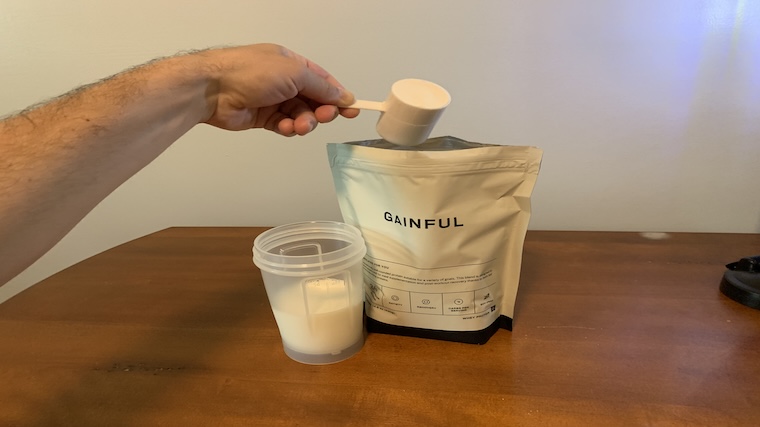
If you are concerned with heavy metal presence in your protein powders, there are a few steps you can take. For one, studies indicate that whey protein, such as the best whey isolates, often showcase a lower hazard index than plant-derived protein sources. (15) Additionally, you can look for protein supplements approved by the Clean Label Project — a third-party testing organization that focuses on label transparency and the hidden risks of environmental contaminants and toxins lurking in everyday products.
Your Fitness Goals
Most of the supplements on this list contain 20 to 30 grams of protein per serving. But the amount of carbs and fats will differ from brand to brand. “Protein-focused powders can displace other nutrients like carbohydrates and fats, along with other nutrients like fiber, vitamins, and minerals,” notes Chris Mohr, PhD, RD. “It’s important to ensure your other macro- and micronutrient goals are supported, or not negatively impacted, at least, with your chosen protein powder.”
To ensure your macronutrients aren’t swayed in the wrong direction with your protein-rich supplement, it’s important to consider your personal fitness goals as you sift through different products. For example, athletes trying to understand how to bulk may prefer a denser protein supplement with more carbs and fats, while macro-conscious individuals pursuing weight management or weight loss may prefer a powder with fewer carbs and fats.
Price
Price is going to depend on several factors, including the type of protein, the macro split, the taste, and the quality of ingredients. If you’re on a budget, you’ll want to consider the areas where you can compromise and still achieve your goals.
Calories Per Serving
On average, most clean protein powders can deliver around 100 to 150 calories per serving, which can be great for keeping you fueled between whole-food meals. Take a look at your daily nutrition habits, though, to ensure your chosen formulation aligns with your needs and wants. For example, mass gainers can be excellent for adding extra calories to your diet during a bulking phase, but they may be less than desirable when trying to cut calories for the sake of a weight loss journey.
Third-Party Testing
Having a clean protein powder that is third-party tested can go a long way in ensuring your shakes are free of any harmful contaminants or banned substances. This can be especially helpful for athletes that need to abide by certain regulations when competing.
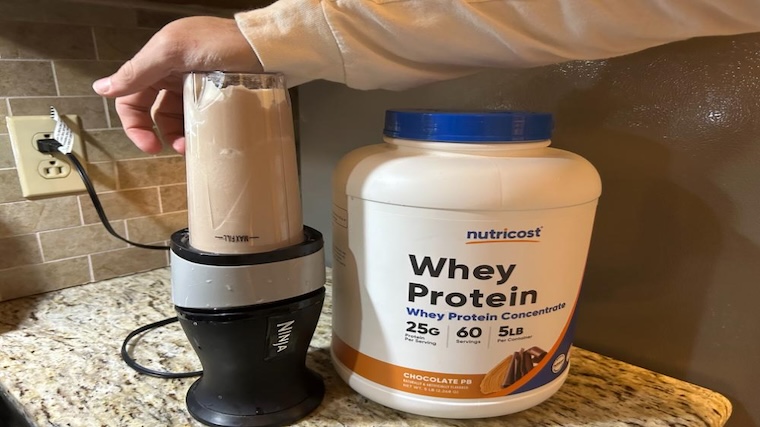
When looking for third-party testing, look directly on the packaging for any present seals of approval. Labs such as NSF and Informed Choice have well-defined logos that need to be displayed on your protein’s packaging for quick identification. Some clean protein powders can also label their products as “third-party tested,” but a lack of a specific group’s identification does leave more questions than answers. Go with what you can see, especially if you’re unsure.
Ingredients and Sweeteners
The best clean protein powders typically use natural ingredients in place of artificial additives, similar to the best natural pre-workouts. Opt for products that use stevia or monk fruit as sweeteners, rather than sucralose, aspartame, acesulfame K, or other artificial sweeteners.
How Much Do Clean Protein Powders Cost?
Clean protein powders can cost more than your average protein supplement given their emphasis on clean formulations free of unwanted additives or ingredients. That said, you can expect to pay roughly $2.15 per serving for a high-quality, clean protein with obvious deviations depending on brand, container size, and more. Below are the costs per serving for each protein supplement featured in this guide.
| Best Clean Protein Powder Overall | Transparent Labs Whey Protein Isolate | Starting at $1.82 |
| Best Clean Budget Protein Powder | Nutricost Grass-Fed Whey Protein Concentrate | Starting at $1.04 |
| Best Clean Vegan Protein Powder | Gainful Vegan Protein | Starting at $2.55 |
| Best Clean Whey Protein Powder | Legion Whey+ | Starting at $1.54 |
| Best Clean Plant-Based Protein Powder | Ritual Essential Protein Daily Shake | $3.27 |
| Best Clean Grass-Fed Protein Powder | Momentous Grass-Fed Whey Protein | $2.20 |
| Best Clean Casein Protein Powder | Naked Micellar Casein | $1.32 |
| Best Clean Protein Powder for Athletes | Klean Athlete Klean Isolate | $2.98 |
| Best Tasting Clean Protein Powder | Onnit Grass-Fed Whey Isolate | Starting at $2.70 |
Clean Protein Powder FAQs
What’s the best clean protein powder?
After factoring in quality, price, macros, and flavor variety, we chose Transparent Labs Whey Protein Isolate. This clean protein powder is ideal for those looking to cultivate lean muscle, as it balances 28 grams of protein with only 120 calories and a near-total lack of fats and carbs. Its whey isolate is sourced from grass-fed cows on American farms untouched by hormones and antibiotics, and its list of ingredients contains no gluten, added sugars, or artificial flavors. Perhaps most impressive? You can choose from 13 flavors.
Can protein powder be part of a clean diet?
Absolutely, protein powder can definitely be part of a clean diet. However, the protein powder you select matters. You want to pick a powder that has as few artificial or unnecessary ingredients as possible. We recommend any of the picks on this list.
Which clean protein powder has the least amount of heavy metals?
It can be difficult to determine just how many heavy metals are present in your protein powder based on the ingredients list alone. The easiest way to see if your protein is low in heavy metals is by seeking out supplements carrying a Clean Label Project seal of approval. For example, Ritual Essential Daily Protein Shake 18+ is approved by the Clean Label Project, certifying that its label is accurate, transparent, and free of underlying toxins that could be infiltrating your protein’s formulation.
What is the best, cleanest source of protein?
Whether you’re drinking plant or animal-based protein, you can find clean options available. Grass-fed whey protein isolate with little to no artificial ingredients is among the cleanest sources of protein. However, you can also opt for a plant-based protein that’s free of artificial colors or sweeteners.
References
- Antonio, J., Candow, D. G, Forbes, S. C,, Ormsbee, M. J., Saracino, P. G., Roberts, J. (2020). Effects of Dietary Protein on Body Composition in Exercising Individuals. Nutrients. 12(6), 1890. https://www.ncbi.nlm.nih.gov/pmc/articles/PMC7353221/
- Ferrando, A. A., Wolfe, R. R., Hirsch, K. R., Church, D. D., Kviatkovsky, S. A., Roberts, M. D., Stout, J. R., Gonzalez, D. E., Sowinski, R. J., Kreider, R. B., Kerksick, C. M., Burd, N. A., Pasiakos, S. M., Ormsbee, M. J., Arent, S. M., Arciero, P. J., Campbell, B. I., VanDusseldorp, T. A., Jager, R., Willoughby, D. S., … Antonio, J. (2023). International Society of Sports Nutrition Position Stand: Effects of essential amino acid supplementation on exercise and performance. Journal of the International Society of Sports Nutrition, 20(1), 2263409. https://www.ncbi.nlm.nih.gov/pmc/articles/PMC10561576/
- Terra, S. L., Marino, V. M., Manenti, M., Licitra, G., & Carpino, S. (2010, September). Increasing pasture intakes enhances polyunsaturated fatty acids and lipophilic antioxidants in plasma and milk of dairy cows fed total mix ration – dairy science & technology. SpringerLink. https://link.springer.com/article/10.1051/dst/2010100
- Staszak, E., & Mikołajczak, J. (2005). Conjugated linoleic acid content of milk from cows fed different diets. Silage Production and Utilisation, 145–145. https://pubmed.ncbi.nlm.nih.gov/10531600/
- Jäger R, Kerksick CM, Campbell BI, et al. International Society of Sports Nutrition Position Stand: protein and exercise. J Int Soc Sports Nutr. 2017;14:20. Published 2017 Jun 20. https://pubmed.ncbi.nlm.nih.gov/28642676/
- Industries, M. for P. (n.d.). NZ Government. Ministry for Primary Industries. https://www.mpi.govt.nz/dmsdocument/46243-Operational-Code-NZCP1-Design-and-Operation-of-Farm-Dairies
- ARROYO-CEREZO, A., CERRILLO, I., ORTEGA, Á., & FERNÁNDEZ-PACHÓN, M.-S. (2021). Intake of branched chain amino acids favors post-exercise muscle recovery and may improve muscle function: Optimal dosage regimens and consumption conditions. The Journal of Sports Medicine and Physical Fitness, 61(11). https://pubmed.ncbi.nlm.nih.gov/33586928/
- Fouré, A., & Bendahan, D. (2017). Is branched-chain amino acids supplementation an efficient nutritional strategy to alleviate skeletal muscle damage? A systematic review. Nutrients, 9(10), 1047. https://www.ncbi.nlm.nih.gov/pmc/articles/PMC5691664/
- Townsend, J. R., Morimune, J. E., Jones, M. D., Beuning, C. N., Haase, A. A., Boot, C. M., Heffington, S. H., Littlefield, L. A., Henry, R. N., Marshall, A. C., VanDusseldorp, T. A., Feito, Y., & Mangine, G. T. (2020). The effect of ProHydrolase® on the amino acid and intramuscular anabolic signaling response to resistance exercise in trained males. Sports, 8(2), 13. https://www.ncbi.nlm.nih.gov/pmc/articles/PMC7077235/
- Joy, J. M., Vogel, R. M., Shane Broughton, K., Kudla, U., Kerr, N. Y., Davison, J. M., Wildman, R. E. C., & DiMarco, N. M. (2018). Daytime and nighttime casein supplements similarly increase muscle size and strength in response to resistance training earlier in the day: a preliminary investigation. Journal of the International Society of Sports Nutrition, 15(1), 24. https://www.ncbi.nlm.nih.gov/pmc/articles/PMC5952515/
- Halton, T. L., & Hu, F. B. (2004). The effects of high protein diets on thermogenesis, satiety and Weight Loss: A critical review. Journal of the American College of Nutrition, 23(5), 373–385. https://pubmed.ncbi.nlm.nih.gov/15466943/
- Moon, J., & Koh, G. (2020). Clinical Evidence and Mechanisms of High-Protein Diet-Induced Weight Loss. Journal of obesity & metabolic syndrome, 29(3), 166–173. https://www.ncbi.nlm.nih.gov/pmc/articles/PMC7539343/ Veldhorst, M., Smeets, A., Soenen, S., Hochstenbach-Waelen, A., Hursel, R., Diepvens, K., Lejeune, M., Luscombe-Marsh, N., & Westerterp-Plantenga, M. (2008). Protein-induced satiety: Effects and mechanisms of different proteins. Physiology & Behavior, 94(2), 300–307. https://pubmed.ncbi.nlm.nih.gov/18282589/
- Kasti, A., Nikolaki, M., Synodinou, K., Katsas, K., Petsis, K., Lambrinou, S., Pyrousis, I., & Triantafyllou, K. (2022). The effects of stevia consumption on gut bacteria: Friend or foe? Microorganisms, 10(4), 744. https://pmc.ncbi.nlm.nih.gov/articles/PMC9028423/
- 2024-25 protein powder category report. Clean Label Project. (n.d.). https://cleanlabelproject.org/wp-content/uploads/CleanLabelProject_ProteinStudyWhitepaper_010625.pdf
- Bandara, S. B., Towle, K. M., & Monnot, A. D. (2020). A human health risk assessment of heavy metal ingestion among consumers of protein powder supplements. Toxicology Reports, 7, 1255–1262. https://pmc.ncbi.nlm.nih.gov/articles/PMC7509468/
